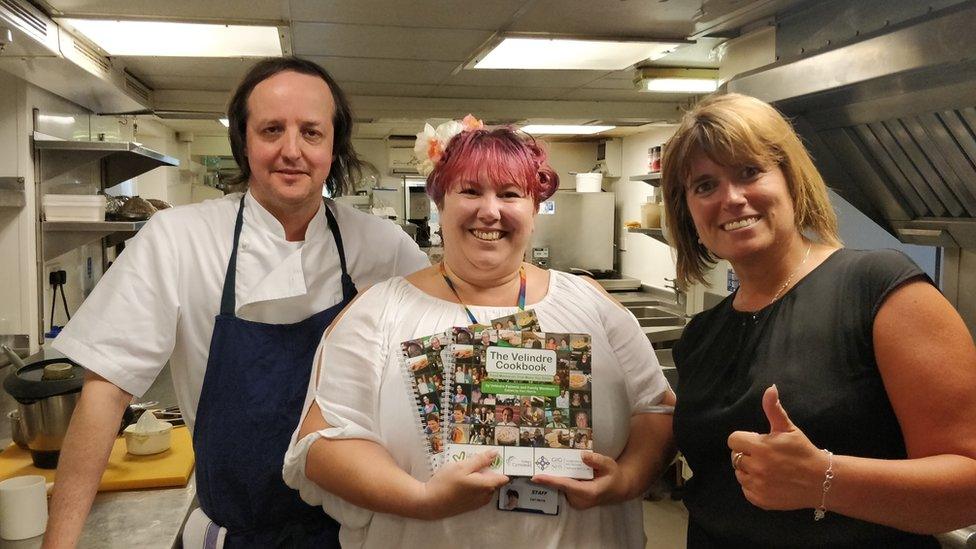Cancer treatment: 'Men should talk about hair loss'
- Published
'Men don't talk about [hair-loss], which says a lot about they are dealing with it'
"Telling my mum was horrible. I remember her coming home from work and I said 'mum everything is fine, [but] my hair is starting to fall out'."
Nic Cumpilido, 24, faced surgery, chemotherapy and radiotherapy while fighting cancer but the resulting hair loss also took its toll.
Welsh health board figures suggest men are far less likely to access hair-loss support, services or wigs during treatment.
Cancer charity Maggie's Centre said they should be more routinely offered to men and urged men to be open minded.
Nic, of Bridgend, was diagnosed with a brain tumour in 2015 while studying at Swansea University and is now in remission.
He lost hair during different stages of his treatment and it has since partially grown back, with his surgery scars visible when it is cut short.
"Losing my hair did have a big, significant impact on my confidence," he said.
"I felt colder, not just physically, emotionally as well.
"I felt another big thing was happening to me - to get used to. I just wanted to be normal."
However, Nic tried to keep it in perspective, attempting to "look at the funny side" of the different stages of hair loss.
That determination saw him have some "fun" with different hairstyles, including a mohawk, a shaven head with beard inspired by TV show Breaking Bad, and one with an asymmetrical point.
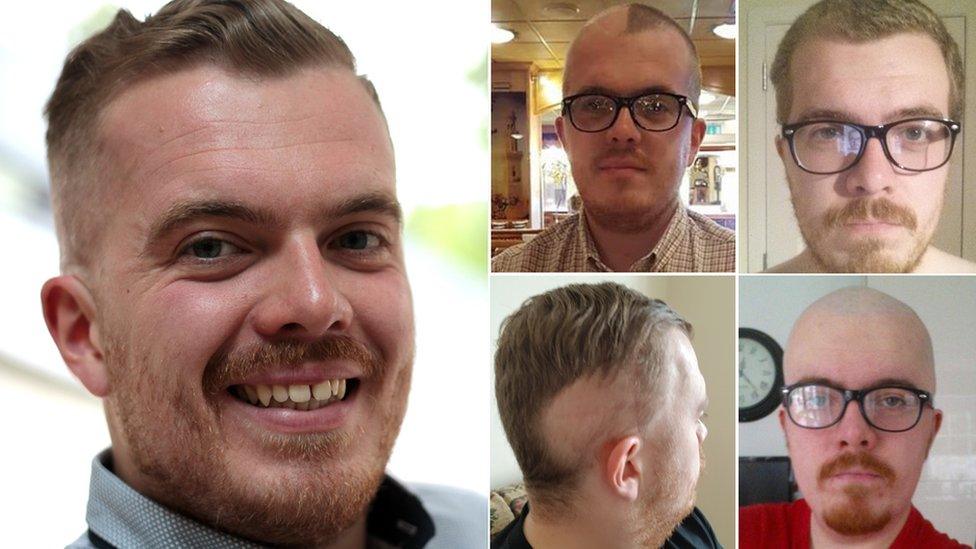
Nic Cumpilido and his different hair styles while being treated for cancer
However hair loss arising from illness or treatment was still a taboo among men.
"Even though men don't speak about it, that says a lot about how men are dealing with it, which is not well," he said.
"Men don't talk about emotions a lot anyway, so it makes sense they wouldn't really talk about hair."
Figures from four of Wales' seven local health boards show only 14 of the 1,601 patients who received wigs or hair appliances on the NHS in 2018-19 were men - that is less than 1%.
Cardiff's Velindre Cancer Centre said the number of men who access so-called cold cap treatments was "very low".
The treatment can prevent hair loss by cooling a patient's scalp during chemotherapy.
Alun Rees, 82, from Mumbles, Swansea, decided to use it while receiving treatment for prostate cancer.
He said: "Generally you think, as you're getting older you're going to lose your hair anyway. It's a gradual, natural process.
"But if you've got a good head of hair, I think it boosts your confidence [to keep it].
"You're still at a very low ebb, having gone through that [chemotherapy] but people say to you, 'you look good', and it lifts you up."
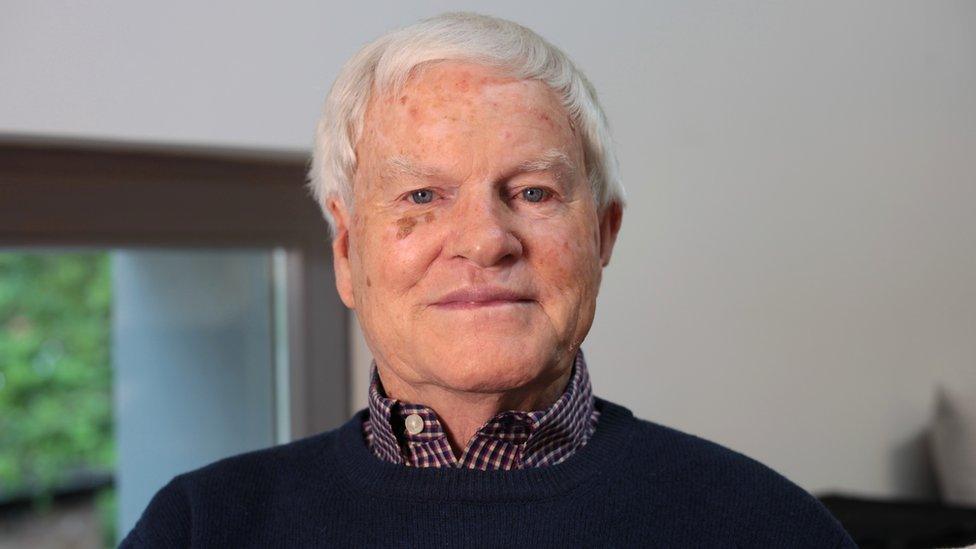
'I didn't need to shave for six months, which was a plus,' joked Alun about losing hair in other places to his head
Alun said it was only chance that he heard about scalp cooling but hoped it would be promoted to more men with cancer.
However he would not have considered using a wig or a hairpiece because of the stigma.
"Men are quite strange about guys who wear wigs. It's a joke, isn't it?"
One issue which can affect men differently to women is losing body hair during some treatments.
Sarah Hughes, of Maggie's Centre in Swansea, said that while hair loss was probably less of a concern for men than women, it was still a "big issue", particularly for some younger patients.
She believes clinicians and support groups could "be better" about providing information, but also urged men to be more open minded about the options.
She said: "It's not just making those assumptions that men are going to be okay with partial or total hair loss, it's giving them the choice too."
- Published4 January 2016
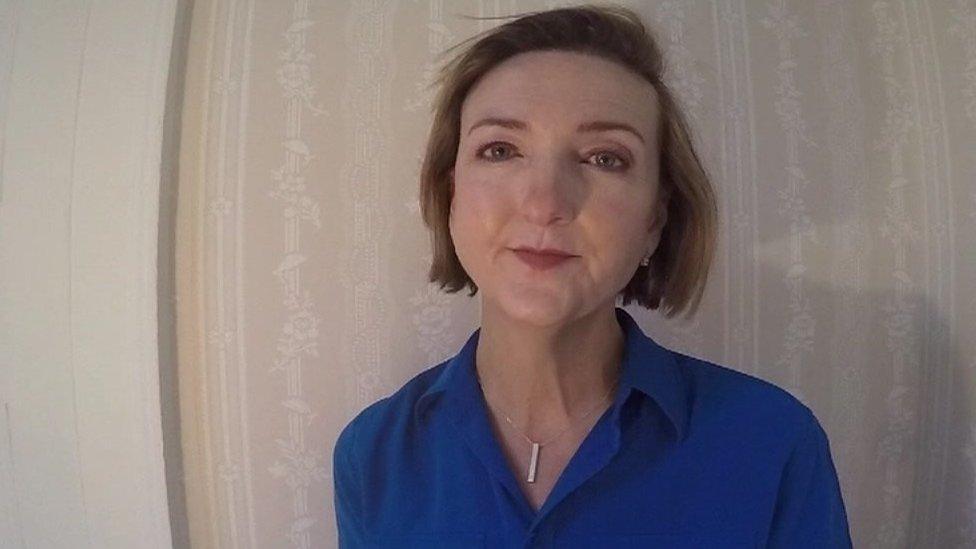
- Published13 October 2011
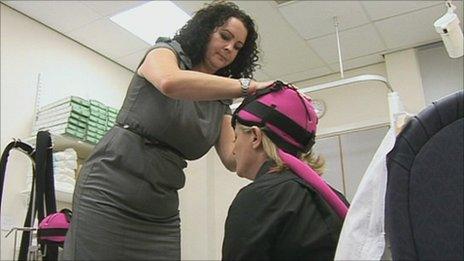
- Published23 April 2019
